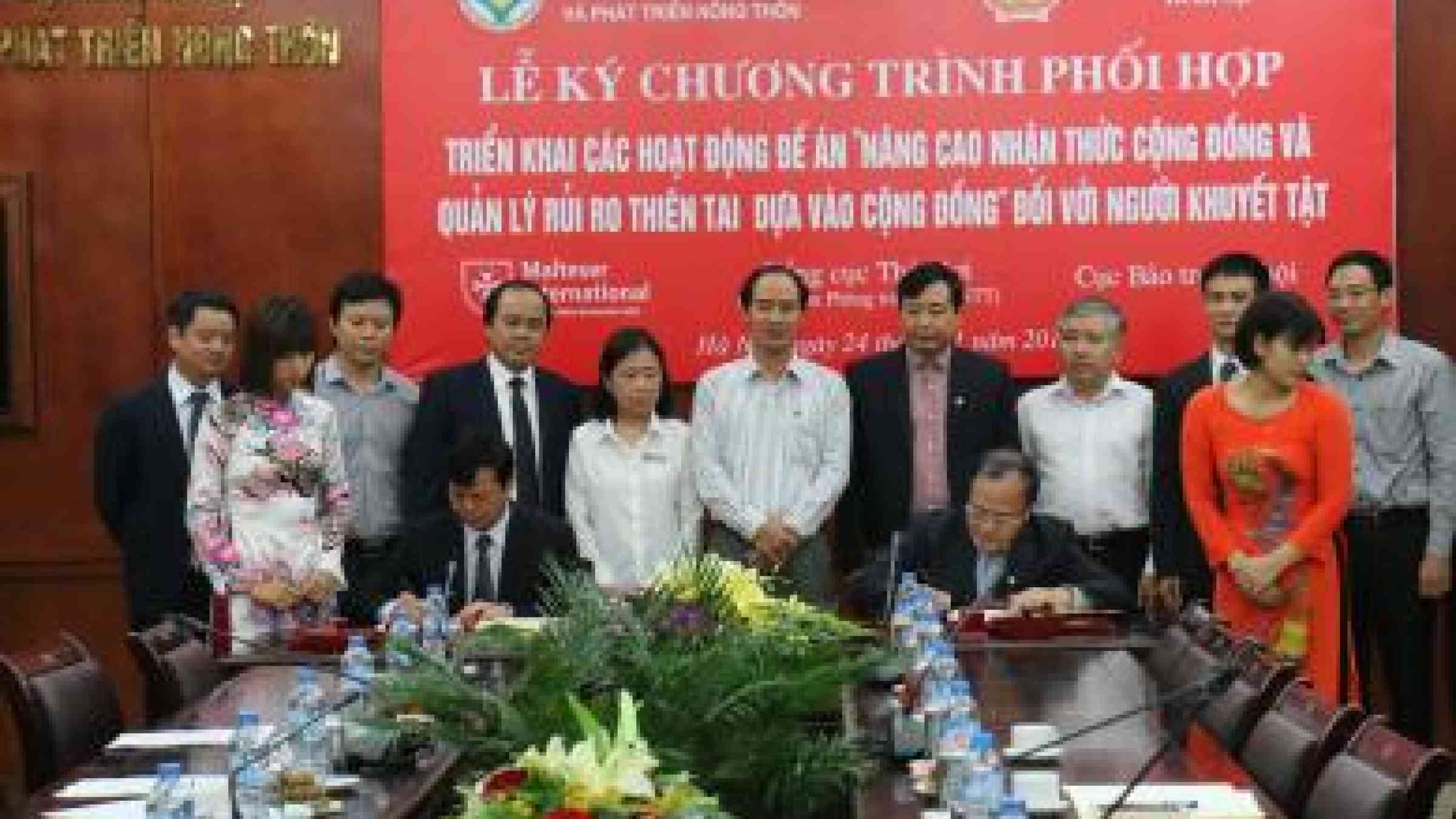Malteser: Towards disability-inclusive disaster risk reduction in Vietnam

Danang city, Vietnam - During November 2015, there were two important events concerning Disability-inclusive Disaster Risk Reduction (DiDRR) that resulted in sustainable changes to the role of people with disabilities in disaster risk reduction (DRR) in Vietnam.
On 12th – 13rd November 2015, the Vietnamese Ministry of Labor, Invalids and Social Affairs (MoLISA) organized the Consulting Workshop on planning for the implementation of the United Nations Convention on the Rights of Persons with disabilities (UNCRPD) in the country. The workshop was held in Quang Ninh province, and was attended by more than 30 representatives from related Ministries, Departments, and organizations of people with disabilities, as well as UNICEF and INGOs.
At the workshop, the representative of Ministry of Agriculture and Rural Development (MARD), who is in charge of DRR in Vietnam, reminded the disability stakeholders of the importance of disability inclusive DRR, as mentioned in article 11 of the UNCRPD. This enabled the stakeholders to recognize the importance of integrating the topic of DRR into the UNCRDP action plan. Mr To Duc, Vice President of the Social Protection Department, of the MoLISA, which facilitated the workshop expressed this sentiment, saying: “Indeed, disability inclusive DRR has not yet received the appropriate concern from disability sector. It is a very important topic and we need to strengthen it in the future.”
During the workshop, the DiDRR group included Malteser International, MARD, and DPO Hanoi members who have been engaged closely in the DiDRR advocacy process in Vietnam. They proposed the specific content on Disability inclusive DRR to be included in the UNCRPD action plan. All of these recommendations by the DiDRR group were mentioned in the UNCRPD draft action plan that will be submitted to the Prime Minister for approval by the end of this year.
Following this event, the MARD and MoLISA organized a ceremony for the signing of a collaboration program to enhance the inclusion of disabled people in Community based Disaster Risk Management (DiCBRM) in Vietnam. This collaboration program clearly mentions the responsibilities for the coordination of DiCBDRM across the whole country by the two ministries. It also emphasizes the role of people with disabilities as important stakeholders in the operational structure at different levels of the CBDRM, the incoroporation of disability inclusion in related policies and national technical manuals, and the participation of DPO members in the national group of master trainers for CBDRM.
The event was held on November 24th 2015 in Hanoi with the participation of 40 Leaders from related Departments of MARD, MOLISA, the Vietnam Women Union, Hanoi Disabled People’s Organization (DPO), Hanoi Deaf Association, Vietnam Blind Association, Quang Nam DPO, key media and Malteser International - a co-organizer for the event.
The ceremony was born out of strong advocacy efforts by the core DPO members from 7 provinces who have been empowered through the last few years through DiDRR/DiCBDRM projects facilitated by Malteser International in Vietnam. Ms Duong Thi Van, Head of DPO Hanoi shared her feelings at the event, saying: “This is the first collaboration of two Ministries in Vietnam regarding the disability inclusion in general and in DRR aspect in particular. It shows how our Government acknowledges and commits to implement the UNCRDP and the Sendai framework for Disaster Risk Reduction which ensures an inclusive approach”.
After this event, the two Ministries will set up a DiCBRM technical working group at a national level, and develop a specific action plan to roll out disability inclusive CBDRM in 6000 disaster prone communes across Vietnam through the National Program of “Awareness Raising and Community based Disaster Risk Management”.